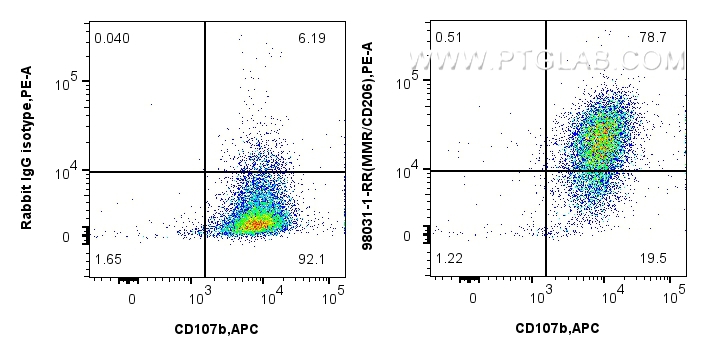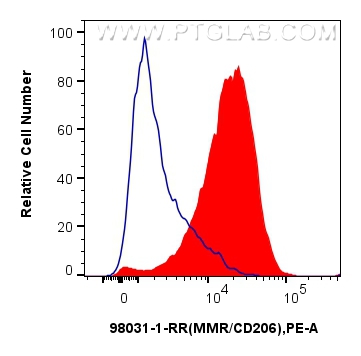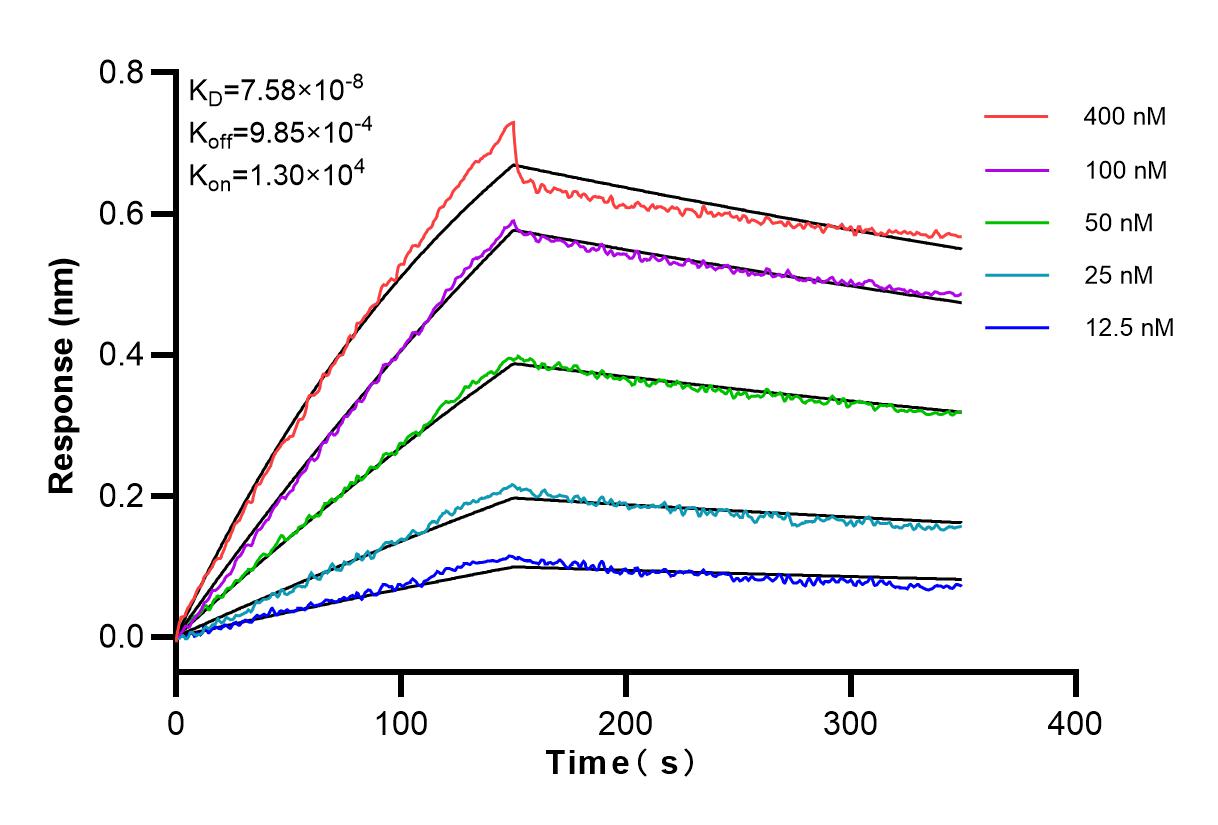Anti-Mouse CD206 Rabbit Recombinant Antibody
CD206 Uni-rAbTM Recombinant Antibody for FC
Host / Isotype
Rabbit / IgG
Reactivity
mouse
Applications
FC
Conjugate
Unconjugated
CloneNo.
240344D12
Cat no : 98031-1-RR
Synonyms
Validation Data Gallery
Tested Applications
| Positive FC detected in | mouse peritoneal macrophages |
Recommended dilution
| Application | Dilution |
|---|---|
| This reagent has been tested for flow cytometric analysis. It is recommended that this reagent should be titrated in each testing system to obtain optimal results. | |
| Sample-dependent, Check data in validation data gallery. | |
Product Information
The immunogen of 98031-1-RR is CD206 Fusion Protein expressed in E. coli.
| Tested Reactivity | mouse |
| Host / Isotype | Rabbit / IgG |
| Class | Recombinant |
| Type | Antibody |
| Immunogen | Fusion Protein |
| Full Name | mannose receptor, C type 1 |
| Calculated Molecular Weight | 165 kDa |
| GenBank Accession Number | NM_008625.2 |
| Gene Symbol | CD206 |
| Gene ID (NCBI) | 17533 |
| Conjugate | Unconjugated |
| Form | Liquid |
| Purification Method | Protein A purfication |
| Storage Buffer | PBS with 0.09% sodium azide. |
| Storage Conditions | Store at 2-8°C. Stable for one year after shipment. |
Background Information
CD206, also named as MMR, CLEC13D and MRC1, is a type I membrane receptor that mediates the endocytosis of glycoproteins by macrophages. CD206 has been shown to bind high-mannose structures on the surface of potentially pathogenic viruses, bacteria, and fungi so that they can be neutralized by phagocytic engulfment. CD206 is a 170 kDa transmembrane protein which contains 5 domains: an amino-terminal cysteine-rich region, a fibronectin type II repeat, a series of eight tandem lectin-like carbohydrate recognition domains (responsible for the recognition of mannose and fucose), a transmembrane domain, and an intracellular carboxy-terminal tail. It is expressed on most tissue macrophages, in vitro derived dendritic cells, lymphatic and sinusoidal endothelia.
Protocols
| Product Specific Protocols | |
|---|---|
| FC protocol for CD206 antibody 98031-1-RR | Download protocol |
| Standard Protocols | |
|---|---|
| Click here to view our Standard Protocols |





